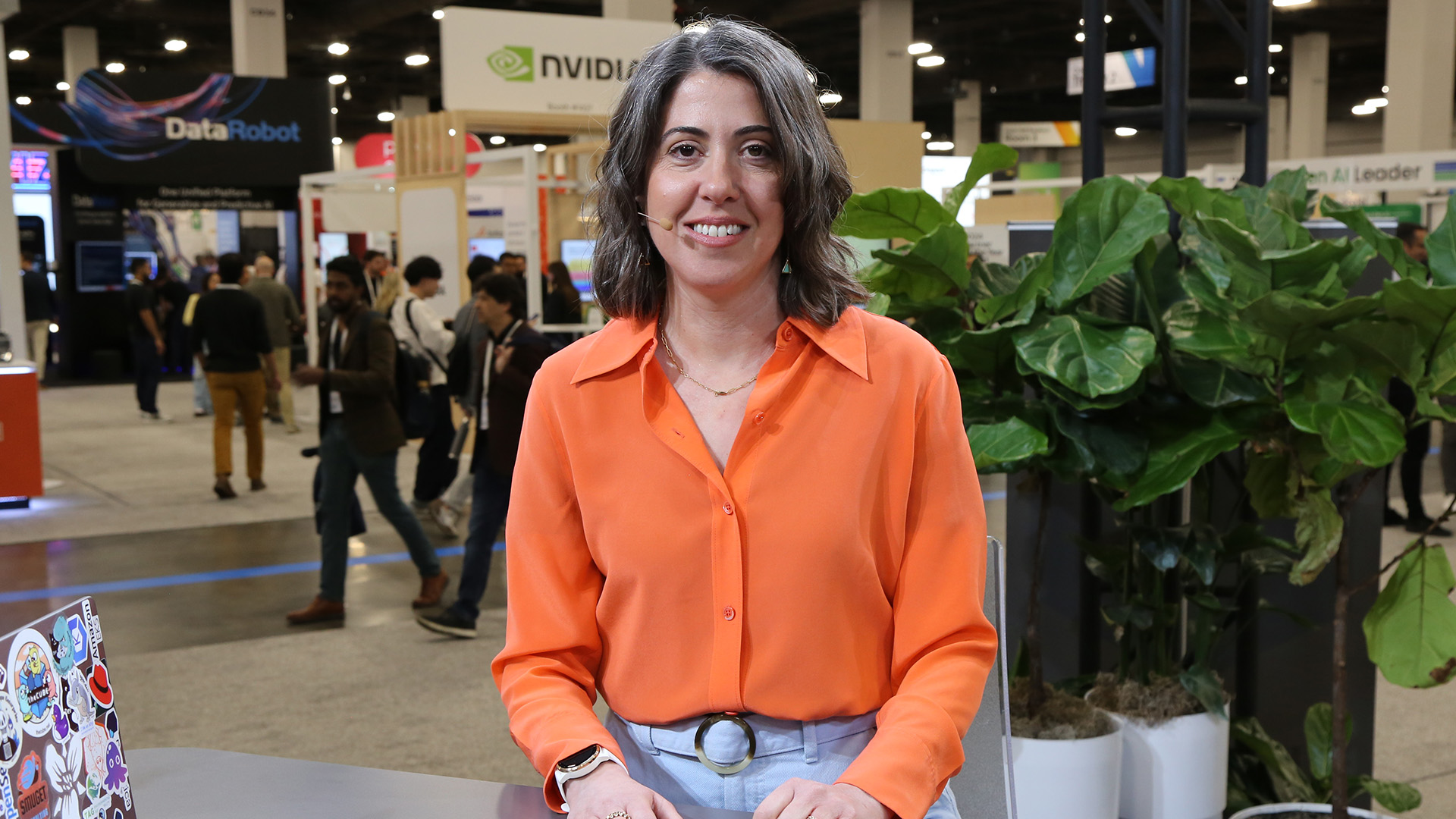 AI
AI
 AI
AI
 AI
AI
As Kubernetes celebrates its 10th anniversary, the future of storage management is looking bright, even as generative artificial intelligence complicates that vision.
“The most important thing that we are seeing people do right now, they are experimenting,” said Chen Goldberg (pictured), general manager and vice president of engineering, Kubernetes and serverless at Google LLC. “There are a lot of areas that are experimenting. They are experimenting in frameworks, they are experimenting in use cases. We see a lot of AI startups that are building their own models, and they are solving problems in very creative ways.”
Goldberg spoke with theCUBE Research analysts John Furrier and Rob Strechay at Google Cloud Next 2024, during an exclusive broadcast on theCUBE, SiliconANGLE Media’s livestreaming studio. They discussed Google’s newest innovations in container and platform management, as well as AI’s role in the future of cloud infrastructure. (* Disclosure below.)
Google Cloud Run is a platform that allows users to build and run containers on top of Google’s infrastructure. Maintaining a simple interface and low run times are crucial for its users, according to Goldberg.
“Before everything happened with AI, our goal was to keep Kubernetes boring,” she said. “We’ve done that by creating those abstraction[s] and really enabling that ecosystem that … is crucial for any innovation.”
AI adds a whole new layer to the container ecosystem. This week, Google announced that it was building on Gemini Code Assist, an AI-powered code assistant, by adding it to its Gemini family. The new assistant uses AI to help users manage their application lifecycles in the cloud.
“Kubernetes and containers have some key attributes that are a great fit for what’s happening [with AI],” Goldberg said. “Containers are great for innovation and moving quickly. [It’s] about how do you take Gemini and create Gemini-powered insights and recommendations within the console and just help me be more productive, be more effective.”
Google also announced that it is integrating Vertex AI and Gemini capabilities into Cloud Run application canvas, which further simplifies and speeds up the development process for teams working in the cloud by allowing natural language queries.
“You can use natural language, say what you want,” Goldberg said. “And behind the scene, powered with Gemini, we are creating the architecture. All the APIs enabled, everything you need. You just click deploy and voila.”
When approaching AI integration, there are many lessons to be learned from the history of Kubernetes, including accessibility and community collaboration, Goldbert pointed out.
“For this to really change the world, we need to make sure that the technology is accessible,” she said. “One of the things that excited me [about Kubernetes] is that through open source, we made this technology accessible for people. So, no matter where I’m from, where in the world, what kind of education, I can try and scale. And we enabled a lot of experiments and learnings. We didn’t try to solve all of the problems at once.”
Here’s the complete video interview, part of SiliconANGLE’s and theCUBE Research’s coverage of Google Cloud Next 2024:
(* Disclosure: Google sponsored this segment of theCUBE. Neither Google nor other sponsors have editorial control over content on theCUBE or SiliconANGLE.)
Support our mission to keep content open and free by engaging with theCUBE community. Join theCUBE’s Alumni Trust Network, where technology leaders connect, share intelligence and create opportunities.
Founded by tech visionaries John Furrier and Dave Vellante, SiliconANGLE Media has built a dynamic ecosystem of industry-leading digital media brands that reach 15+ million elite tech professionals. Our new proprietary theCUBE AI Video Cloud is breaking ground in audience interaction, leveraging theCUBEai.com neural network to help technology companies make data-driven decisions and stay at the forefront of industry conversations.